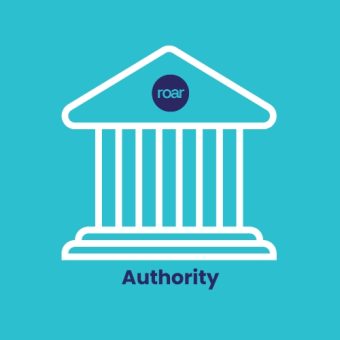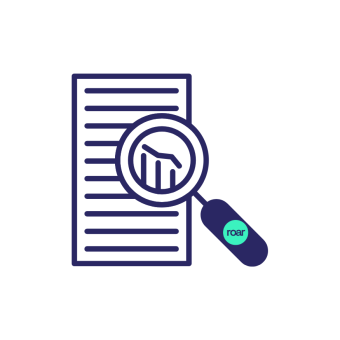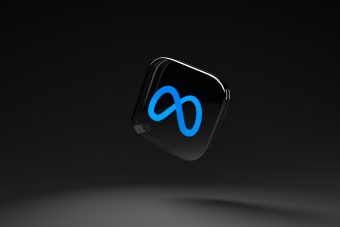Artificial Intelligence (AI) is no longer confined to sci-fi films or academic theory. It’s in our phones, our emails, and increasingly how we get work done. Yet for many professionals, the term still feels a bit mysterious.
This article provides a clear, practical overview of what AI is, how it works, and why it matters.
Jump to:
- What is Artificial intelligence?
- What is ChatGPT and how does it work?
- What are the limitations of AI?
- Everyday use cases in the workplace
- Why AI matters to business
- AI tools
- Final thoughts
What is Artificial intelligence?
Artificial Intelligence refers to software designed to simulate human intelligence. This includes recognising patterns, understanding language, solving problems, and making decisions.
Unlike traditional software, AI doesn’t just follow a fixed set of rules. It learns from data to improve over time. It can be used to automate repetitive tasks, draft content, and hold natural-sounding conversations.
The idea has been around since the 1950s, but recent advances in Large Language Models (LLMs) have made AI accessible and useful in everyday work.
AI surged into the public consciousness in late 2022 and 2023 with the rapid uptake of ChatGPT—a generative AI tool capable of producing natural language responses in real time. Its viral growth demonstrated, for the first time, what AI could do outside of labs or big tech—bringing advanced capabilities into homes, schools, and businesses almost overnight.
This mainstream adoption sparked global interest in how AI might reshape communication, creativity, and productivity. Now it’s on your phone, in your apps, even connected to your Gmail.
What is ChatGPT and how does it work?
ChatGPT is one example of an LLM. Developed by OpenAI, it was trained on a vast collection of books, websites, and conversations to generate human-like responses.
Here’s how it works:
- It reads extensively, absorbing millions of pages to understand how people write and speak.
- It learns patterns. For example, it knows that “How are you?” is usually followed by “I’m good, thanks!”
- It predicts words, like a highly advanced autocomplete that guesses the most likely next word in a sentence.
- It sounds smart because it’s mimicking language patterns, not thinking independently.
What are the limitations of AI?
AI is powerful, but it’s not flawless:
- It generates, not reasons: AI tools operate on probabilities, not comprehension.
Example: AI might write a convincing-sounding legal clause—but without understanding actual law, it could miss critical meaning or context.
- It lacks real-world awareness: Outputs are based on past training data, not live knowledge.
Example: AI won’t know about regulatory updates post-2023 unless specifically trained on them. This means business decisions based solely on AI outputs risk being outdated.
- It can be confidently wrong: Misinformation or hallucinated content is still possible.
Example: In 2024, Google Gemini’s AI Overviews came under fire for confidently recommending unsafe or false advice—like adding glue to pizza or misidentifying historical facts. These hallucinations weren’t errors in logic, but in overconfidence from the model.
Important to note: these tools can sound confident and still be wrong. They don’t understand like a human and they can hallucinate answers that look convincing but aren’t.
That’s why we always advise:
Treat AI as a starting point, not the final version
Keep a human in the loop to sense-check outputs
Avoid sharing sensitive data
Fact-check when accuracy matters
Everyday use cases in the workplace
Content creation and optimisation
AI tools are ideal for accelerating day-to-day content tasks:
- Drafting emails, blogs, and social media posts in your brand’s tone
- Rewriting press releases for different audiences or formats
- Turning meeting transcripts into polished summaries
This allows marketers and comms teams to move faster without compromising on tone, clarity, or consistency.
Document management and summarisation
Whether it’s legal, technical or training content—AI can:
- Break down long PDFs into key takeaways
- Generate executive summaries for busy stakeholders
- Create quick-reference guides from detailed internal docs
Time saved here adds up fast—especially in high‑compliance industries.
Ideation and creative assistance
Stuck on a headline or campaign concept? AI can help you:
- Brainstorm taglines, campaign names or ad scripts
- Generate variants of product descriptions or calls-to-action
- Reframe messages for different channels or segments
- Creativity remains human—but AI makes the process less painful and more productive.
Generative Engine Optimisation (GEO)
One of the most strategic use cases is SEO powered by AI, called generative engine optimisation (GEO) or AI-SEO.
GEO isn’t just about ranking in search engines. It’s about showing up in AI-powered results, like Google’s Search Generative Experience (SGE) or Bing Copilot. These platforms are changing how people discover brands—and if your content isn’t structured for generative AI, you’re invisible.
We help businesses build content that’s AI-ready, schema-rich, and built to surface in the new era of search.
Explore our GEO service to keep up with search engines in 2025.
Internal training and knowledge sharing
AI can transform how teams onboard and upskill.
- Generate onboarding checklists and training scripts
- Translate complex policies into plain English
- Turn internal knowledge bases into AI-friendly Q&A formats
When used well, AI boosts productivity, enhances creativity, and improves consistency across content and communication.
Why AI matters to business
AI matters because of the real-world impact it delivers. It saves time, sparks creativity, and improves the quality of everyday work. It’s not just about doing things faster, it’s about doing them better.
When used well, AI gives teams a head start. It takes care of the heavy lifting, so people can focus on the work that really counts: strategic thinking, creative problem-solving, and building meaningful connections.
Here are 15 AI tools (like Mark the Marketer) you and your team can use today to save time and money. Or if you’re looking for a tool to cut through the AI news noise, read about our Unique AI news summariser. A new tool that pulls together all the relevant AI news in the last week straight into your slack.
Final thoughts
AI doesn’t need to be intimidating. At its core, AI is about giving us smarter tools to tackle everyday work more efficiently and creatively.
The focus shouldn’t be on AI replacing jobs, but on how it can empower people to work smarter, faster, and with greater impact.
Understanding how AI works and when to use it is fast becoming a core skill. The sooner your team builds confidence with these tools, the more competitive and creative you’ll be. Not just in marketing, but across every part of your business.
Want to learn more how your team can build confidence with AI?
Get in touch below or read about our AI training session at Hamptons Estate Agents, a national UK estate agency.



